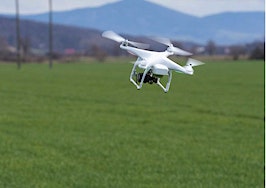Enjoy the Connect experience from your computer, laptop or tablet! Watch Connect now.
Takeaways:
- More agents and developers are using drone-captured content to better market properties and monitor a construction project’s progress.
- Hendrix Consulting is one of the first airline transport pilot-owned companies to be granted the exemption.
- The Small UAS Rule, which will be the primary method for authorizing small UAS operations once complete, is currently being hashed out and has yet to reach finalization.
More agents are utilizing aerial images and videos captured by unmanned aerial systems (UAS) — drones — to better market properties. Additionally, more developers are using drone-captured content to better monitor a construction project’s progress.
In response to this increased usage, firms that provide aerial imaging solutions are vying for Section 333 exemptions from the Federal Aviation Administration (FAA).
These exemptions provide operators legal entry into the National Airspace System and a “competitive advantage in the UAS marketplace,” according to the FAA, who has identified the civil operation of UAS for commercial purposes as a high-priority issue.
One aerial imaging firm, Hendrix Consulting Group, was recently granted a Section 333 Exemption and Certificate of Authorization for UAS operations throughout the U.S.
According to the firm, it has been granted the exemption to conduct a variety of aerial data collection services to include aerial imaging, videography, photography, mapping and inspection services to the real estate, construction and land development industries.
Hendrix Consulting is one of the first airline transport pilot-owned companies to be granted the exemption. The firm’s founder and CEO, Dan Hendrix, is a pilot for a major airline, and all of the company’s operators are FAA-licensed pilots.
According to the FAA, any aircraft operation in the NAS requires a certificated and registered aircraft, a licensed pilot and operational approval. Section 333 grants the Secretary of Transportation the authority to determine whether an airworthiness certificate is required for a UAS to operate safely.
The Small UAS Rule, which will be the primary method for authorizing small UAS operations once complete, is currently being hashed out and has yet to reach finalization.








